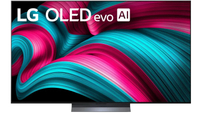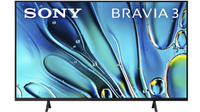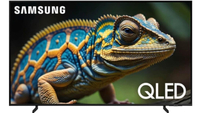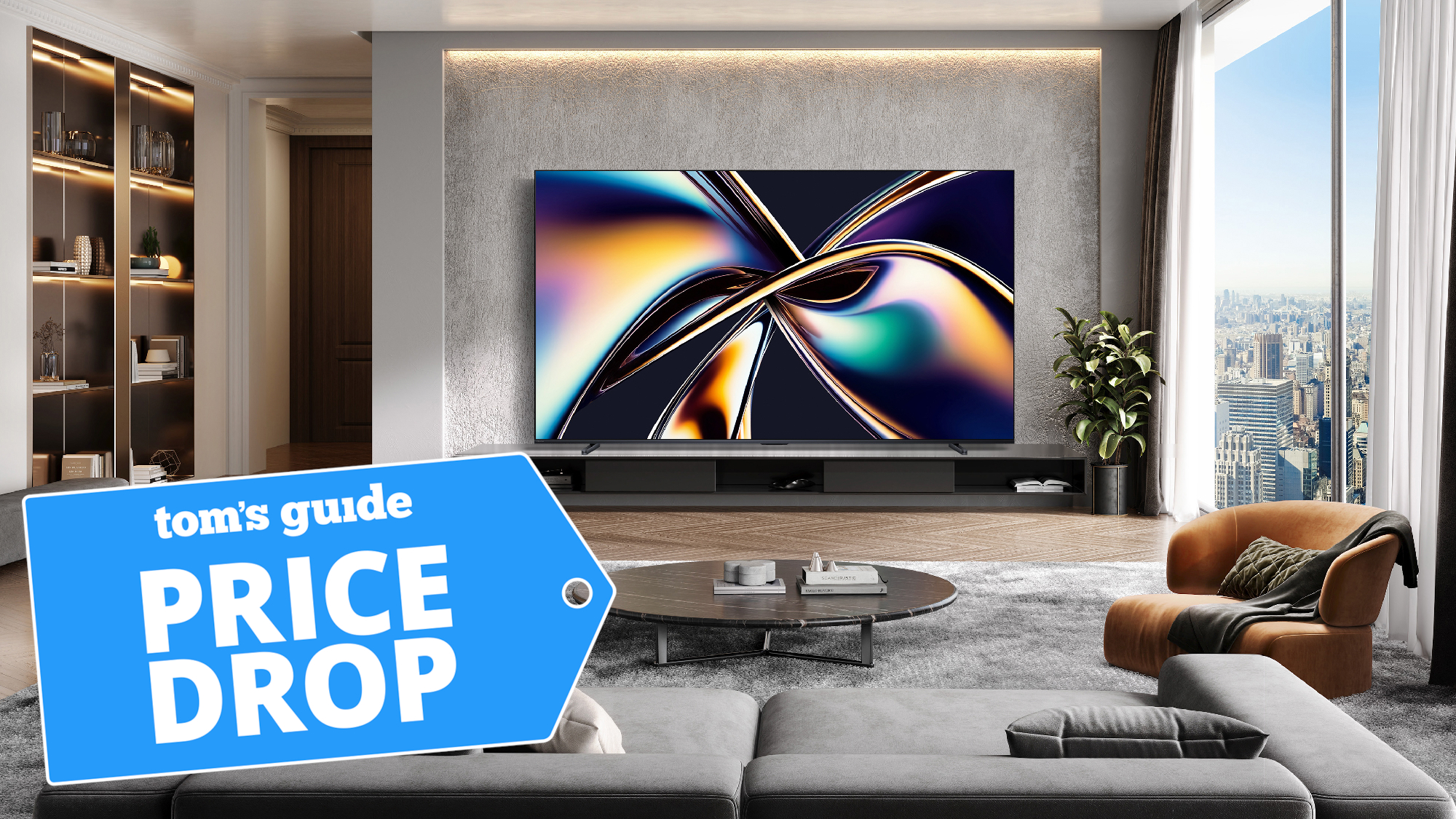Best 43-inch TVs in 2025: Expert tested and rated
The best 43-inch TVs for small living rooms, bedrooms and dorms
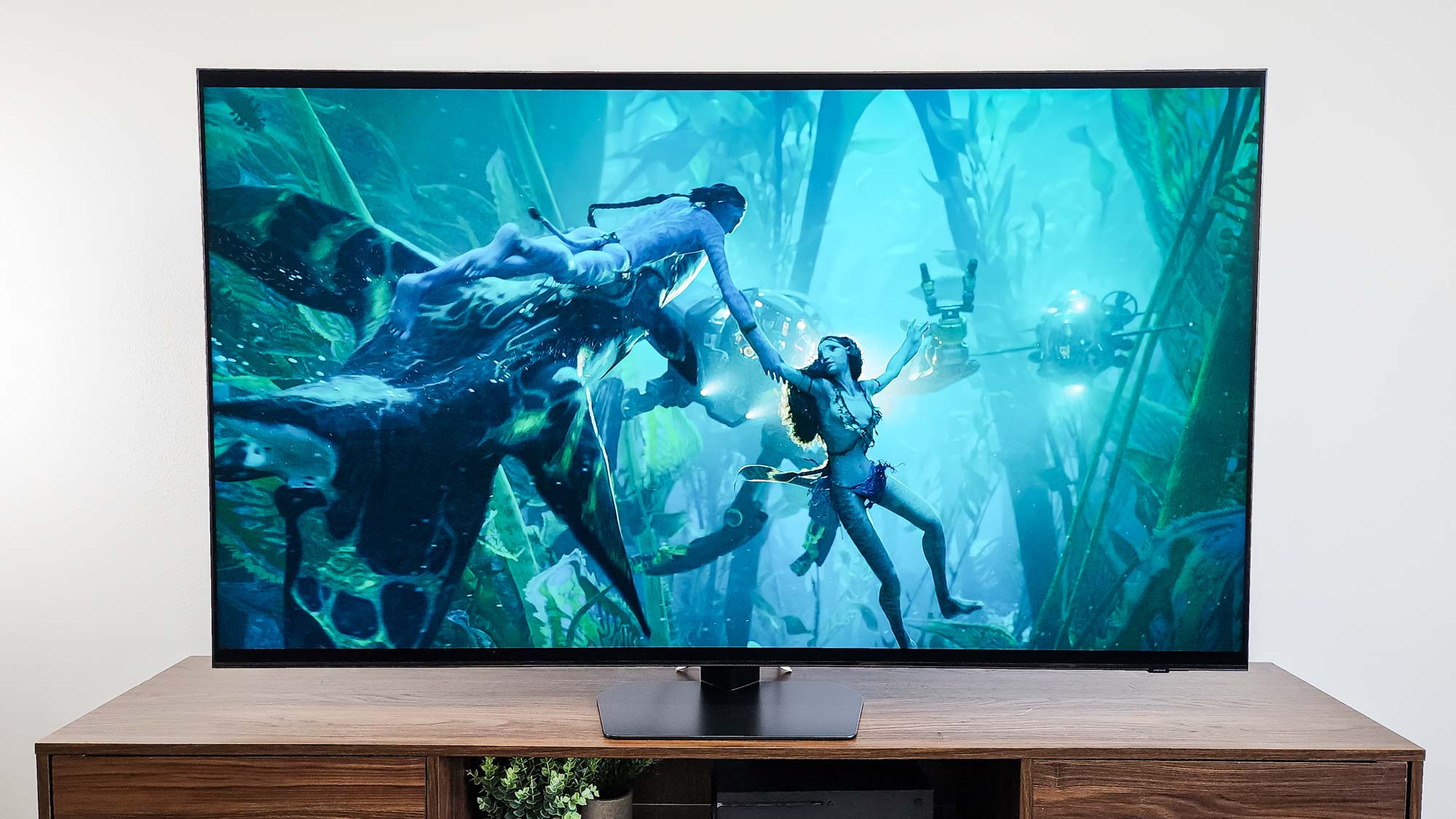
I’ve been testing and reviewing TVs for over ten years, and I’m here to tell you that, despite what you may have read about TVs getting bigger, smaller-sized sets are still popular picks. The best 43-inch TVs look good across all content types and offer useful features for gaming and beyond.
These days, most brands offer 42- and 43-inch TVs across various price points. These modestly sized TVs offer you far more leeway in terms of room décor and space. You might even want to leverage one of the best 42- or 43-inch TVs as a PC monitor.
At the very top of this list is the LG C4 OLED, a 42-inch TV that delivers sensational contrast, voluminous color and plenty of streaming- and gaming-related features. As a 2024 release, the C4 is on sale right now for far less than it was priced when it debuted. Its successor, the LG C5 OLED, is also listed below.
While the C5 improves upon the C4’s excellent performance, it’s far pricier due to its more recent release. For now, we feel that the 42-inch C4 is a better pick for most people.
That said, the LG C4 still might prove a little expensive, or might not be a good fit for everyone's living space. We've tried to find a 42- or 43-inch model for everyone.
Best 43-inch TV
The best 43-inch TVs in 2025
Why you can trust Tom's Guide
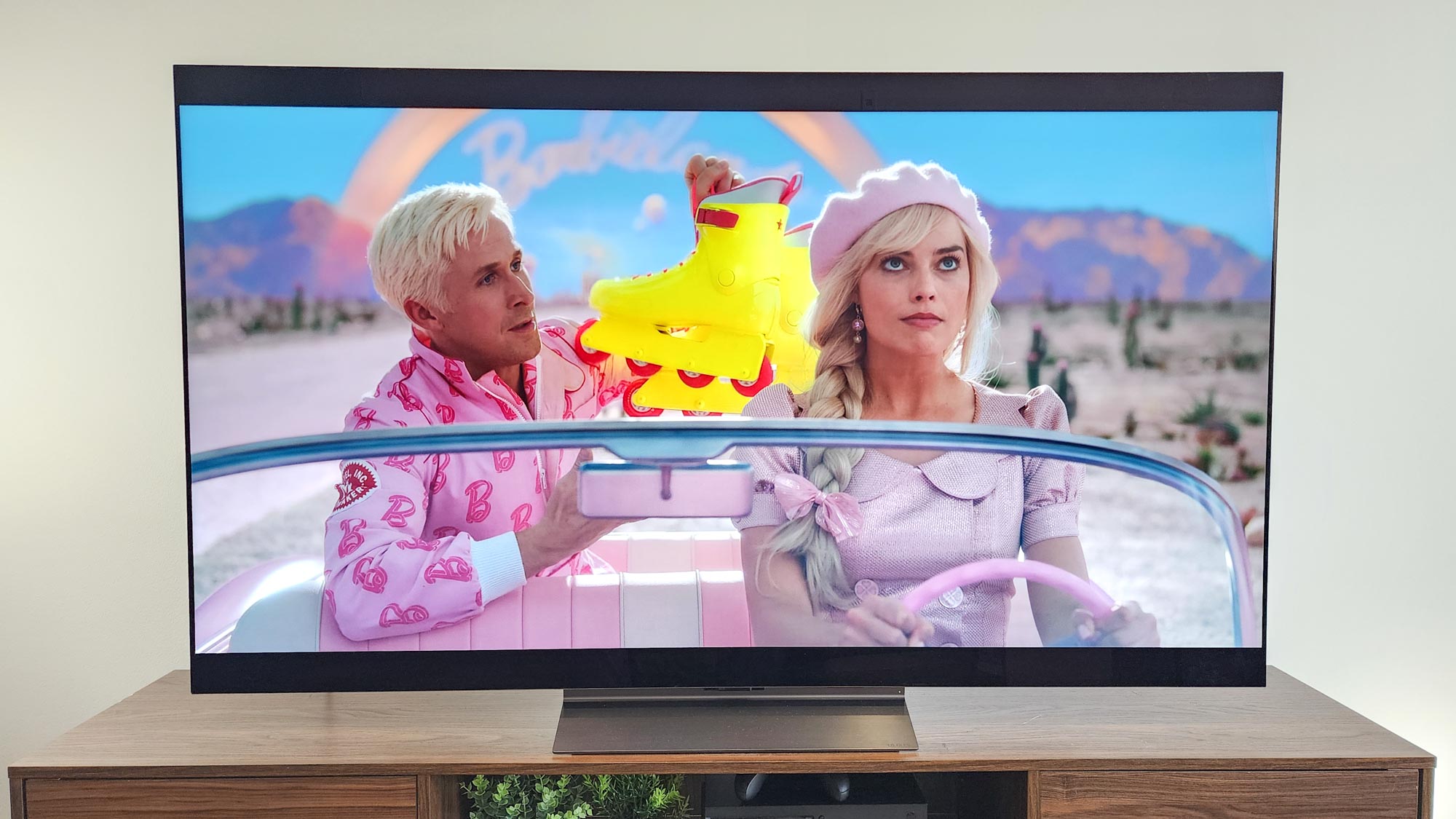

Specifications
Reasons to buy
Reasons to avoid
The best 43-inch TV you can buy right now is the 42-inch LG C4 OLED. It's replacing last year's LG C3 OLED in the top spot. If you're looking for a smaller-sized TV that doesn't cut corners, the C4 is the way to go.
You'll pay more for the 42-inch C4 than most TVs in this size range (and lose out on a single inch), but I think it's worth it. Like all OLED TVs, contrast is the C4's bread and butter. Its self-lit pixels allow for perfect black levels and precise contrast control. There are other benefits to the display tech, too: wide, accommodating viewing angles and an ultra-thin, featherlight design. Its svelte build makes it an especially attractive option for narrow desks (or otherwise limited tabletop space).
The C4 is a gaming powerhouse. All four of its primary inputs are HDMI 2.1 and support 4K gaming at both 120Hz and 144Hz. That last spec makes the C4 a terrific option for folks who want to use it as a monitor for PC gaming. The LG C4 also supports ALLM, VRR, FreeSync Premium, and offers G-Sync compatibility. Crucially, we clocked its input lag below 10ms, too, making it a fine companion for competitive gamers who can't afford to lose a step.
It's a wonderful way to showcase HDR movies, shows, and games, but ultimately, the 42-inch C4's current price is what propels it to the top of this list. At the time of this update, it's on sale for about $900 — more than most 42- to 43-inch TVs, but I'm quite confident that you'll find it worthy.
Read our full LG C4 OLED review.
Best QLED TV
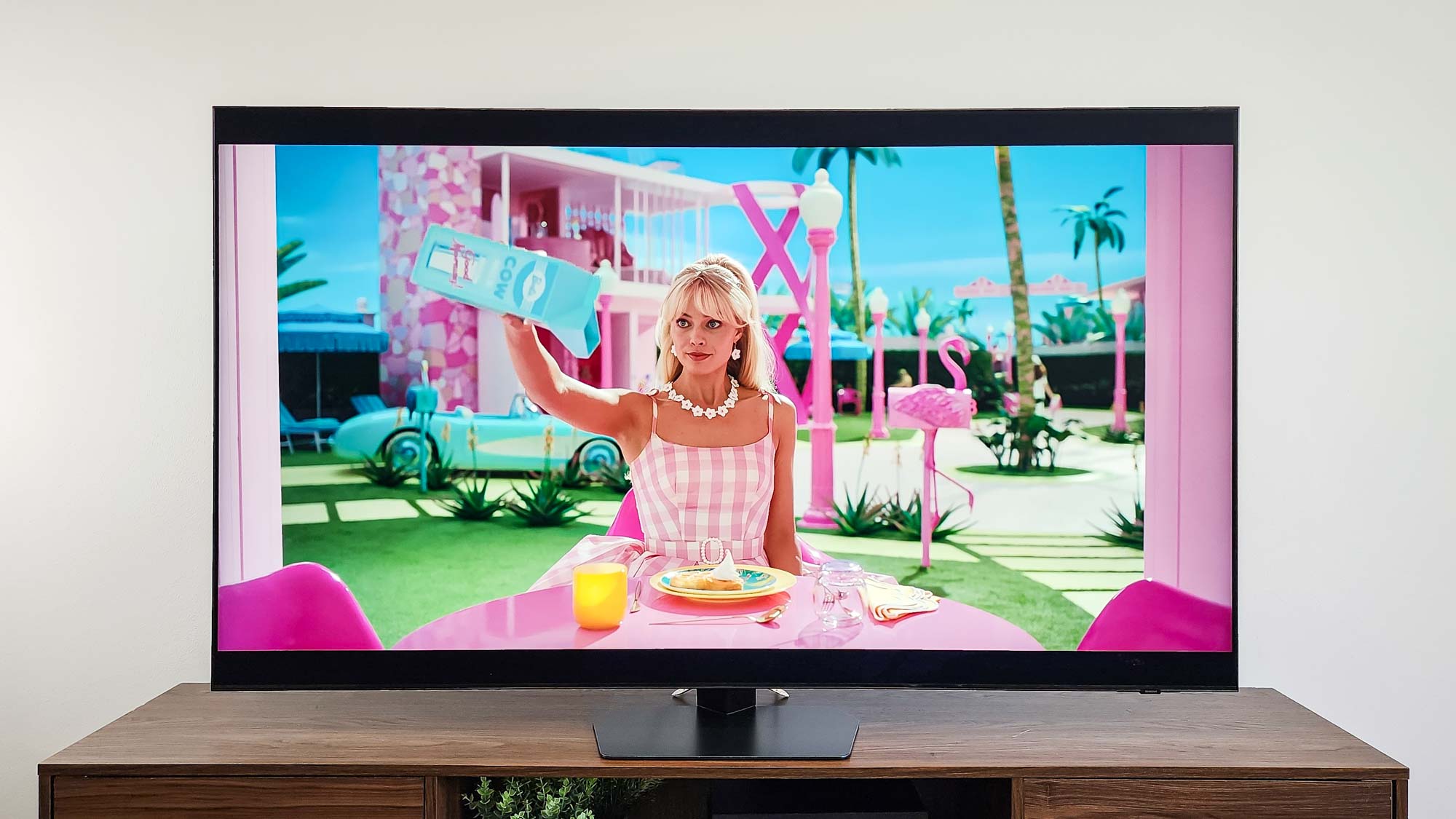
Specifications
Reasons to buy
Reasons to avoid
The Samsung QN90D is our pick for the best QLED TV in this small size range. It's replacing last year's excellent QN90C model. Like its predecessor, the QN90D comes in a perfectly compact 43-inch screen size and offers a higher peak brightness than many of its peers.
In our tests, the Samsung QN90D reached a peak brightness of 2,091 bits in a 10% window — a huge improvement over the QN90C. I was also quite impressed by the QN90D's local dimming, which kept all of that brightness in check and minimized light bloom when bright objects met surrounding darkness.
The 43-inch Samsung QN90D is a bright alternative to the 42-inch LG C4 OLED. If the room you're planning on putting your next TV in gets a high amount of sunlight, I recommend the QN90D over the C4. The QN90D's suite of hardware- and software-related gaming features is comparable to the C4's, and right now, these two TVs are priced similarly.
Read our full Samsung QN90D Neo QLED TV review.
Best value TV
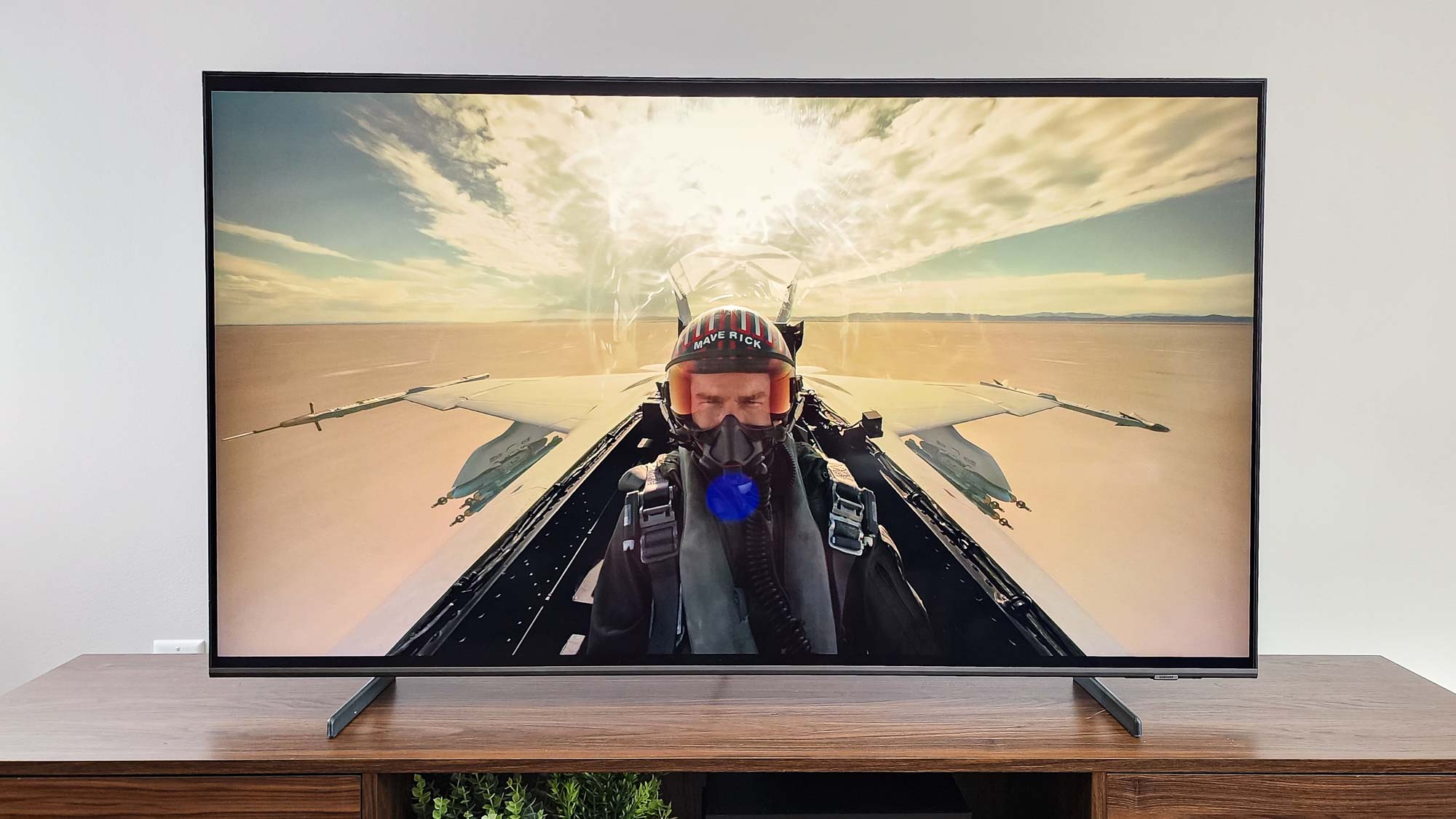
Specifications
Reasons to buy
Reasons to avoid
Our pick for the best value 43-inch TV is the 43-inch Samsung Q60C. Compared to a higher-end Samsung QLED (like the 43-inch QN90D), the Q60C drops some features and takes a hit on performance, but the result is that you're getting a QLED TV at a steep discount. Its low brightness means movies and shows (especially those mastered in HDR) won't look as punchy as it will on other sets, but if all you need is a decent-looking, 43-inch 4K TV, the Q60C is a great, value-forward pick.
It's not a gaming machine like the Samsung QN90D, but the Q60C is still a good choice for gamers on a budget, as it comes with impressively low input lag and strong color accuracy. Games will look good and play smoothly, even though 4K games will max out at 60fps.
The Q60C also comes with a built-in smart platform that will cover all of your streaming needs, should you opt not to use a dedicated streaming device. If you need something more affordable for a second room, the Samsung Q60C covers the basics for a reasonable price.
Read our full Samsung Q60C QLED review.
Best budget TV
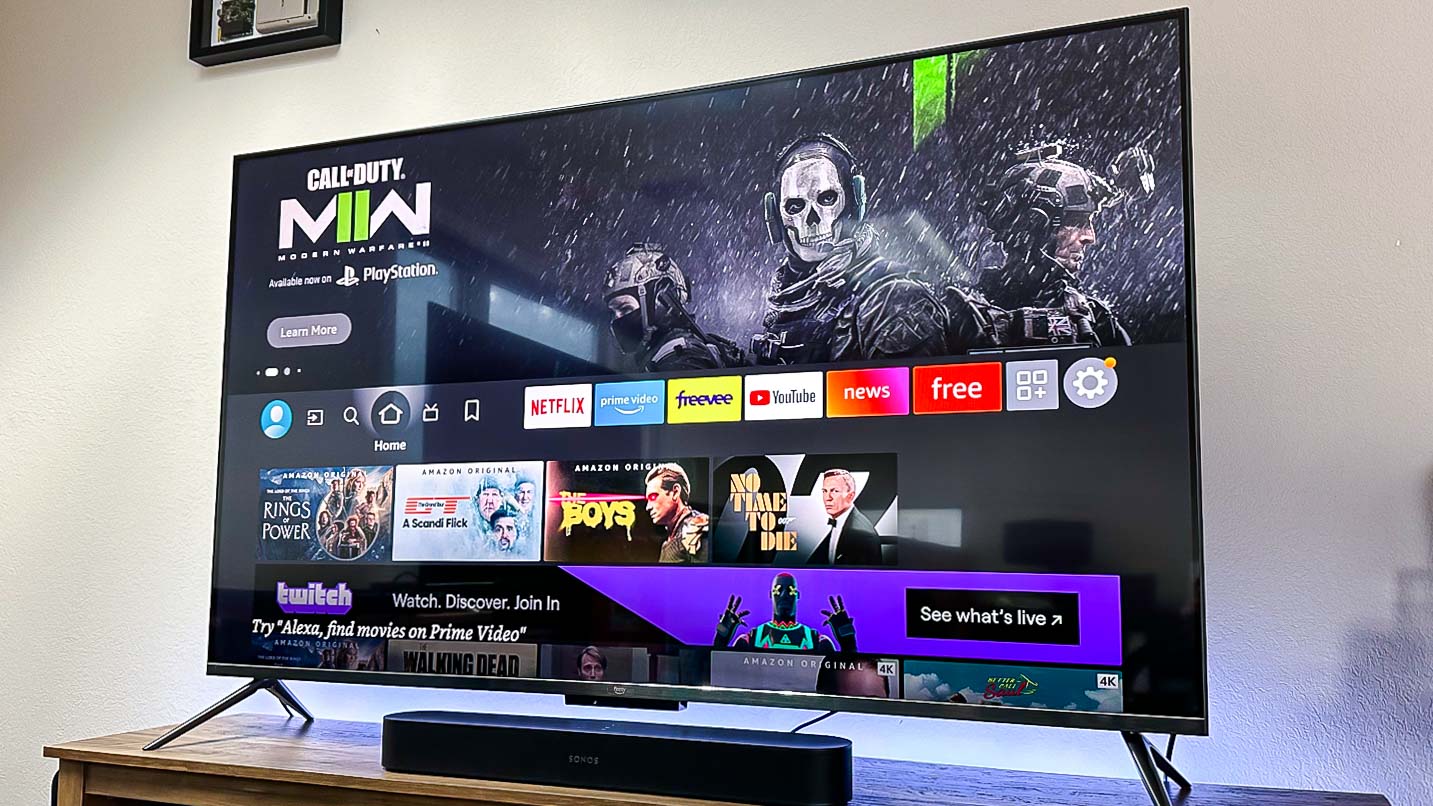
Specifications
Reasons to buy
Reasons to avoid
The Amazon Fire TV Omni won't win any awards for earth-shattering HDR performance, but its built-in Fire TV platform and low sticker price make it a suitable option for folks looking to spend as little as possible on a 43-inch TV without scraping the bottom of the barrel.
As mentioned, the 43-inch Fire TV Omni doesn't showcase 4K, HDR content in a way that truly takes advantage of the format. Still, for a TV in this price range, it'll pass most people's eye test.
The ability to summon Alexa hands-free is great when you want to ask a quick question, and its respectable 10ms of input latency make it one of the better picks for gamers looking to spend less than $400 on a 43-inch gaming TV.
Amazon's smart TV software has always been at its best when showcasing built-in Alexa functionality, but the Amazon Fire TV Omni series takes this to a new level, enhancing that capability and pairing it with a better looking TV than any Fire TV we've seen before. It's not a perfect product, but our Amazon Fire TV Omni review explores the many ways Amazon tries to make its new Fire TV the best Fire TV.
Read our full Amazon Fire TV Omni review.
Best 43-inch TV test results
TV | Peak Brightness (tested) | Delta-E (tested) | BT2020 Color Volume (tested) | Input Lag (tested) |
LG C4 OLED | 1,049 nits | 1.8 | 72.27% | 9.2ms |
Samsung QN90D | 2,024 nits | 2.6 | 72.52% | 9.6ms |
Samsung Q60C | 410 nits | 1.6 | 69.79% | 9.0ms |
Amazon Fire TV Omni | 556 nits | 1.9 | 73.8% | 10ms |
Sony Bravia 3 | 448 nits | 3.5 | 69.81% | 9.2ms |
Other 43-inch TVs we've tested
Of course, these aren't the only 43-inch TVs aren't the only ones we've tested. Here are other 42- and 43-inch models that didn't make our top list.
LG 42" C5 OLED TV: The 42-inch LG C5 OLED might eventually rise to the top of the list, overtaking its predecessor, the C4. The C5 is even better than the C4, offering brighter HDR highlights and slightly better out-of-the-box accuracy. The only reason we still recommend the C4 over the C5 is because the C4 is currently about $400 more than its successor at the 42-inch size point.
Read our full LG C5 OLED review.
Sony 43" Bravia 3 LED TV: The most affordable TV that carries the Bravia moniker is Sony's Bravia 3, and right now, the 43-inch Bravia 3 is on sale for around $499. Despite the Bravia 3's lack of luminance and local dimming, I appreciated the accuracy of its out-of-the-box performance in Sony's Professional picture mode. It's priced higher than most budget-oriented 43-inch TVs, however, so you'll have to spend a bit more for Sony engineering.
Read our full Sony Bravia 3 review.
Samsung 43" Q60D LED TV: Samsung's most affordable 2024 QLED isn't an impressive TV, but if you just need an ultra-affordable 43-inch TV with built-in smart features, there are worse models out there. The main reason we prefer the Bravia 3 over the Q60D has to do with the Q60D's more limited display technology. You can read more about it in our Sony Bravia 3 vs Samsung Q60D face-off.
Read our full Samsung Q60D QLED TV review.
How to choose the best 43-inch TV
How to choose the best 43-inch TV for you
Choosing the best 42- or 43-inch TV for you will come down to three things: design, performance and features.
Design: Make sure that a TV in this size range makes sense for your space. According to our guide on the best TV size, a 43-inch TV is ideal for viewers seated 3.5 to 4 feet away from the screen. That size makes them the perfect second TV for a bedroom, an inexpensive kids TV or a dedicated TV for gaming. Alternatively, many people have been turning to 42- or 43-inch TVs for use as monitors in their office or working space.
Performance: Several factors contribute to a TV’s performance, but generally speaking, you should be on the lookout for TVs with good contrast, voluminous color and an accurate picture out of the box. A TV with high brightness is more likely to look better in well-lit rooms. If you’re not shopping for an OLED TV, an LED TV’s display hardware is important; Mini-LED TVs typically offer the best backlight control, while backlit LEDs with local dimming usually come with better contrast than edge-lit LED TVs.
Features: Even at the 42- and 43-inch size point, a TV’s features are important. Every TV on this list comes with built-in smart features, but not every smart platform is the same. If you plan on relying on your next TV’s streaming software, look for a set with a reliable smart platform. Additionally, if you’re a gamer, familiarize yourself with the gaming features that might be important to you, like refresh rate and input lag.
We touch on all three of these categories in our reviews, so be sure to check out a TV’s full evaluation if it catches your eye.
How we test 43-inch TVs
How we test 43-inch TVs
When it comes to evaluating the best 43-inch TVs, we're serious about getting it right.
Even at this smaller size point, our TV-testing process consists of two key components: in-depth, scientific testing and real-world use. We believe that gathering data about a TV's performance is just as important as spending time with it in our own living rooms.
Just as you might do at home, we source content from Netflix, Blu-rays, YouTube, and more. We play video games, tinker with the TV's settings, and get to know its built-in smart platform. We have a number that represents the TV’s peak brightness, but how well the picture holds up during the day is a different story. The color measurements we gathered in the lab may be accurate, but problematic picture processing might not rear its ugly head until you boot up an episode of “Andor.”
When getting to know these TVs, we ask ourselves the sort of questions you might ponder yourself: What do all of these menus do? Which settings look the best? Is this TV hiding an always-on microphone, listening to everything I say?
Comparing lab-based data with extensive, hands-on use reveals a complete picture of a TV's strengths and weaknesses. With this hybrid approach, we're able to put ourselves in your shoes and to help you make a confident, informed choice about which 42- or 43-inch TV to buy.
Sign up to get the BEST of Tom's Guide direct to your inbox.
Get instant access to breaking news, the hottest reviews, great deals and helpful tips.
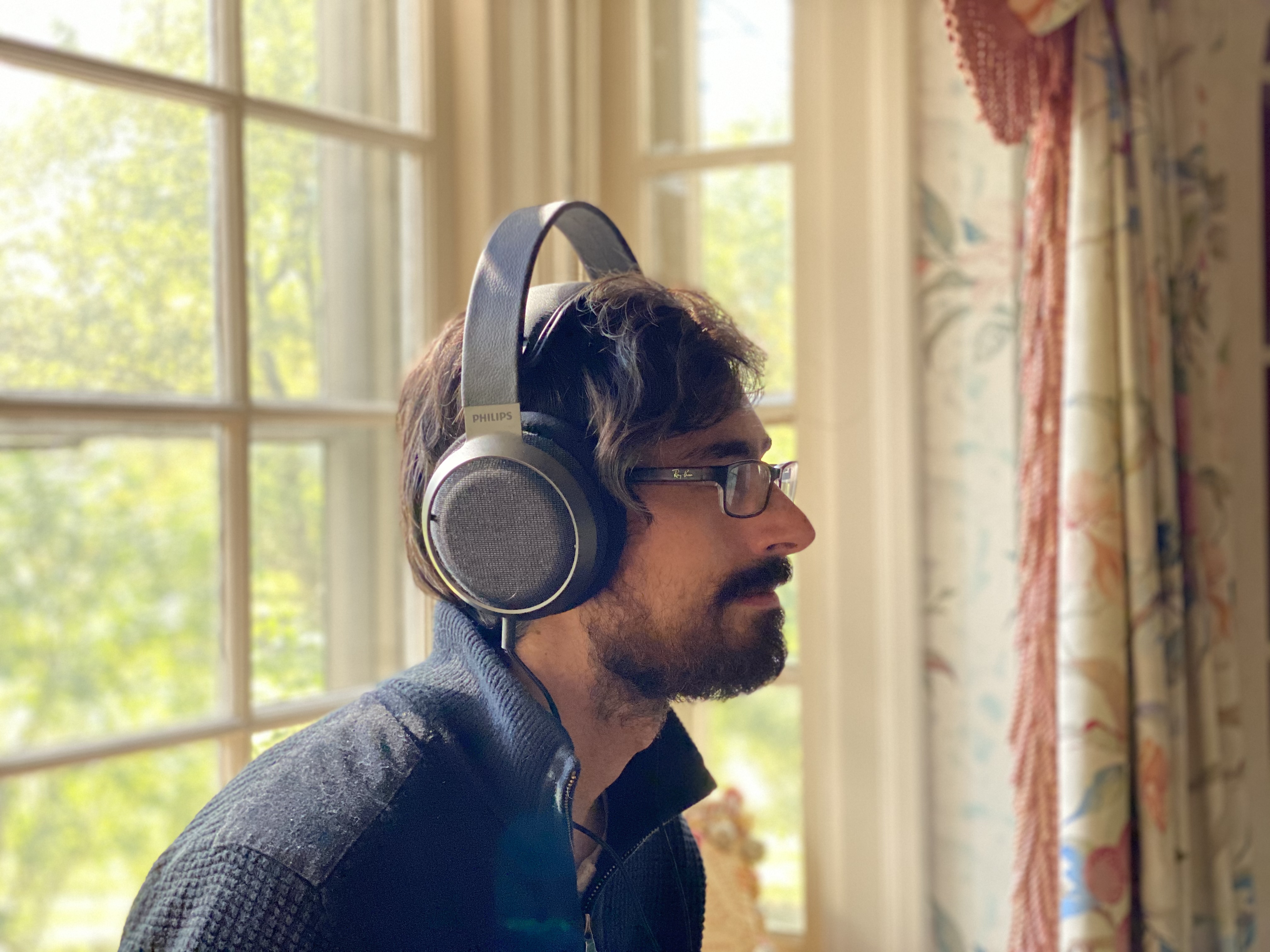
Nick Pino heads up the TV and AV verticals at Tom's Guide and covers everything from OLED TVs to the latest wireless headphones. He was formerly the Senior Editor, TV and AV at TechRadar (Tom's Guide's sister site) and has previously written for GamesRadar, Official Xbox Magazine, PC Gamer and other outlets over the last decade. Not sure which TV you should buy? Drop him an email or tweet him on Twitter and he can help you out.
- Michael DesjardinSenior Editor, TV
